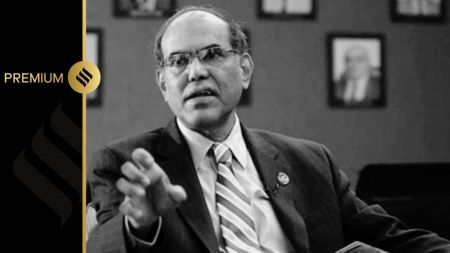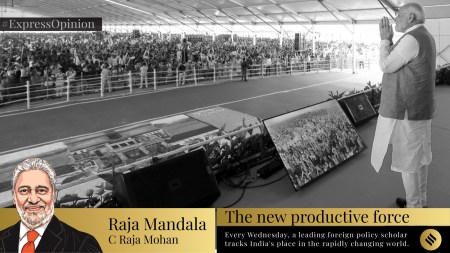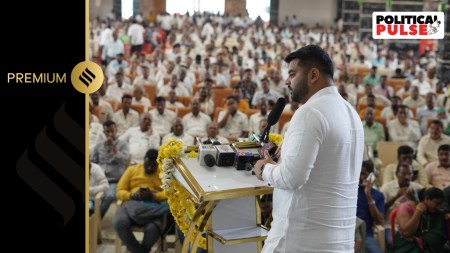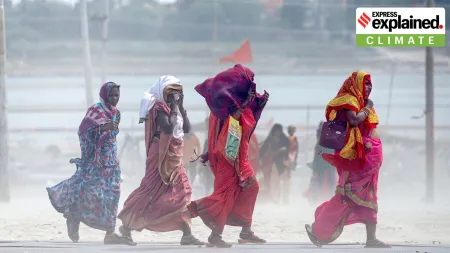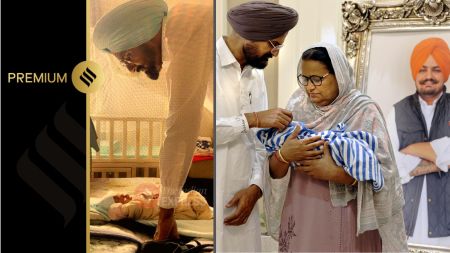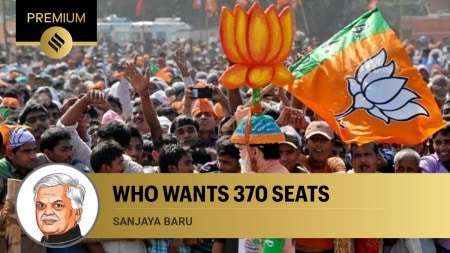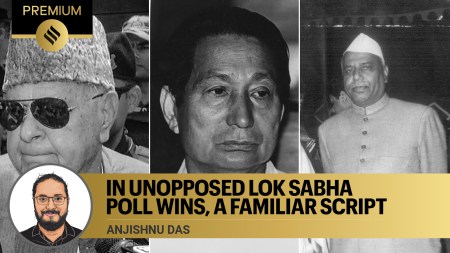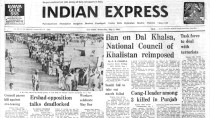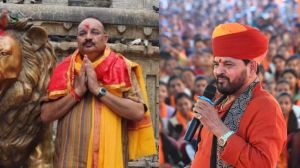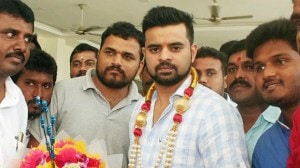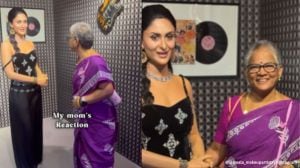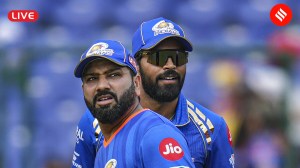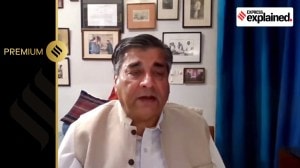- India
- International
Rajit Kapur on Basu Chatterjee: His films will remain evergreen even in a dull-grey world
'Basu Chatterjee gave clear instructions and enough leeway at the same time to the actor. Once he had decided what the look and the feel was, there was a certain amount of freedom given. But it was very clear how much he wanted, and how much he didn’t.'
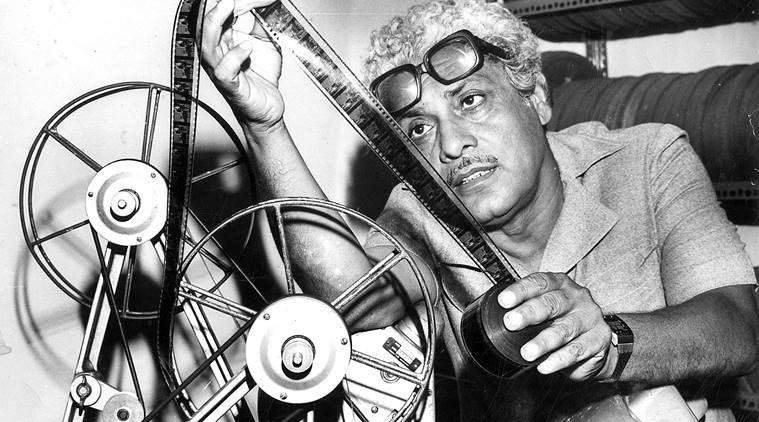 Film Director Basu Chatterjee. (Express Archive photo)
Film Director Basu Chatterjee. (Express Archive photo)
Basu Chatterjee was known for his middle-of-the-road cinema — simple stories of the common man that the audiences related to. And this speaks volumes about the man himself. He had a great sense of humour and a tongue-in-cheek way of talking that came through in all his films. At the same time, he was a man with simple needs and that, too, reflects in his films. While working on Chatterjee’s Byomkesh Bakshi, that’s what I learnt: Sometimes, simple is more effective.
There was a series on Doordarshan in the mid-1990s called Yugantar, where I played the role of the poet Michael Madhusudan Dutt. The show was written by Sujit Sen and directed by Shubhankar Ghosh. They had suggested my name to Basu da and showed him a couple of my scenes from Yugantar. He called me and, in a matter of 10 minutes, I was finalised for essaying the role of Byomkesh Bakshi. This was 1990, and I was taken aback when he called me and gave me all the 33 stories — with the completed dialogues — and said, “Here, this is what we are doing”. Even today, after 30 years, people don’t give you complete scripts with dialogues. Anyhow, that set the foundation for things. Every department on set knew what we were doing. This was also a way of saving time because time was money. It was a very practical approach. I learnt planning from Basu da. It was something I incorporated into my work being a production person.
I learnt time management, too, from the man. He never wasted time. If we were reporting at 9 am, we would start work by 9.20 am and finish at 6.30 pm. If we had not finished, he would say that we would do it the next day, but he would not shoot beyond a point. During working hours, he was a disciplinarian. On the sets, he would only want to shoot. He would say, “If you have any problems with the scenes etc, read it in advance and discuss it with me before work. No unnecessary discussion on the sets”. If you asked him too many questions, he would say, “This is my time to focus on the shoot. You should have asked me yesterday”.
He would come prepared on the sets with what he wanted to do and had a practical approach to filming as well. He would say, “This is how I want the scene. You can sit here or stand there but don’t go beyond that wall because my camera cannot reach there”. He gave clear instructions and enough leeway at the same time to the actor. Once he had decided what the look and the feel was, there was a certain amount of freedom given. But it was very clear how much he wanted, and how much he didn’t.
The other thing was that Basu da was a fast worker. If something was not working, he would say, “All right, try plan B. If that was not working, then plan C” would be put in place. He always had a solution or a second option ready, constantly thinking on his feet. If the cameraman was tired, he would pick up the camera himself and say, “All right, I will operate it and shoot. Come on, you take a break”. But work went on.

If Byomkesh is still relevant today, you have to give credit to the writer, Sharadindu Bandyopadhyay, first. The way he has written it is so relatable that it seems appealing to a five-year-old and an 85-year-old. I think it is the script and the writing that one has to salute first, and then Basu da’s singular practical approach. There were no frills attached to his making of the series. That’s why it connects with and communicates to all.
There was one more time that I worked with Basu-da. He had approached me when he was making a film called Prateeksha with Dia Mirza and Jimmy Shergill. Basu da specially asked me to come and direct a scene because it had to do with theatre and he said, “Look, I don’t have enough knowledge of the stage so I don’t know if I can handle this scene”. There was no beating around the bush. He had no qualms about admitting what he didn’t think he could manage.
I last met him four-five years ago and he had remained the same. I had picked up a lot of old film posters, and one was of his film, Chitchor. I framed it and went to give it to him, and he was quite surprised. I can watch films such as Chitchor, Chhoti Si Baat or Rajnigandha again and again, and still enjoy them. These films remain with you. They were ordinary, yet extraordinary because they were not run-of-the-mill movies. His films also had memorable songs that we hum even today. It is strange. Hrishi da (Hrishikesh Mukherjee) and Basu da were musicians, but they had such wonderful music in their films. Today, when it comes to making films, our focus for various reasons is on marketing. We forget the content and the core: Somewhere, Hrishi da and Basu da always managed to get the core right. Their hearts were in the right place. That is why their films are evergreen.
(Kapur is a National Award-winning actor based in Mumbai. As told to Dipanita Nath)
40 Years Ago
EXPRESS OPINION
More Explained
May 02: Latest News
- 01
- 02
- 03
- 04
- 05


